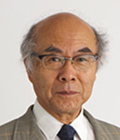
Speakers and conference papers
Professor Y.S.Lee Director’s Opening Remark
The Honorouable J J Spigelman AC Welcome Address

Professor Jai S. Mah is teaching at Ewha Womans University. He received Ph.D. in economics at Brown University. He worked at Dankook University, the WTO secretariat and the Korean government. His main interests are related to international trade and economic development and he has published more than 50 articles in international journals.
Presentation Summary: Export Promotion and Economic Development of Korea
Korea has achieved rapid economic development for the past few decades, raising its economic stature from one of the most impoverished countries in the world to an advanced industrial nation. Korea will host the G20 summit meeting in November 2010. What is the reason for the rapid economic development of Korea? Professor Mah will explain the policy measures taken by the Korean government to promote exports, analyse their contribution and problems, and provide developing countries with the implications for their economic development process under the WTO system drawn from the experience of export-led economic development of Korea.

Professor Wang Jiangyu is an Associate Professor at the Faculty of Law of the National University of Singapore. His teaching and research interests include international economic law, corporate and securities law, law and development, Chinese legal system, and human rights in China. He practiced law in the Legal Department of Bank of China as well as Chinese and American law firms. He served as a member of the Chinese delegation at the annual conference of the United Nations Commission on International Trade Law Conference in 1999. He is a member of the Chinese Bar Association and the New York Bar Association. He is also a director on the Executive Board of the WTO Institute of the China Law Society, a Senior Fellow at the Law and Development Institute (LDI), and a fellow of the Asian Institute of International Financial Law (Hong Kong). He has also been invited expert/speaker for the WTO, International Trade Centre (UNCTAD/WTO) and United Nations Economic and Social Commission for Asia and the Pacific (UNESCAP). He recently received the 2007 Young Research Award of The Chinese University of Hong Kong in recognition of his accomplishment in research from 2006-2007. Professor Wang has published extensively in Chinese and international journals and newspapers on a variety of law and politics related topics.
Presentation Summary: Law and Development in Asia
Over the past thirty years, China has achieved tremendous economic success and is now the world’s second largest economy. During the same period, China has also built a rather comprehensive legal system, although it is still at the nascent stage in terms of sophistication. The development of China’s legal system is currently at a critical juncture as the policymakers and China law observers are faced with two questions. First, it has been heatedly debated as to whether a formal legal system has made a critical contribution to China’s remarkable economic success. Secondly, whether the Chinese legal system is one based on the rule of law, or at least, is marching toward the rule of law. These questions are crucial as they are related to both an assessment of the past history and the future direction of the Chinese legal system. This research seeks to address these questions from a state-building perspective. The research hypothesis is that development of law in China should be viewed as part of China’s state-building process. It attempts to argue that China has not completed its state-building. State-building requires different conditions at different stages. The role played by law in this process has varied, depending on the perceived needs of the state in building a modern nation. In general, the legal history of the PRC can be divided into two stages: the first stage features “administrative governance”, in which the law probably necessarily played a secondary role for the purpose of effective state-building. Since the mid-1990s, China has entered into the second stage of state-building, which requires instead “legal governance”. On the whole, China is moving from administrative governance to legal governance in its endeavour to build a modern state.

Dr Salim Farrar is Senior Lecturer, and Associate Director of CAPLUS at Sydney Law School. His teaching and research interests are in Islamic Law, Malaysian Law, Law and Development, and Criminal Justice. Before moving to the Sydney Law School in 2009, he was Associate Professor at the International Islamic University, Malaysia, where he had taught since 2004. While the majority of his publications and research to date has explored the interplay between Islamic law, state laws and human rights, his current interest lies in legal approaches in economic development and the role of Islamic banking and finance in Asia.
Presentation Summary: The role of Islamic finance and the quest for sustainable economic development in South-East Asia
In the wake of GFC and the evidence of continuing fragility of western economies, Islamic finance is emerging as a viable alternative to conventional finance, growing at a rate of 20% per annum. Although its financial institutions were not left unscathed, Malaysian and Indonesian Islamic financial markets have proved popular destinations for FDI as capital surplus economies in the Middle East have sought safer and more culture-friendly markets for their petrodollars. As finance and trade flows pick up momentum, and more regional players are brought in, including from majority non-Muslim countries, the issue is what impact Islamic financial laws and ethics will have on economic and social development in the region and whether they can be successful in facilitating the rejuvenation of modern Nusantara. This presentation details current achievements in Malaysia and Indonesia and assesses future potential in light of the legal, political and economic contexts.

Dr. Malcolm Cook is the Director of East Asia Program at the Lowy Institute for International Policy. Dr. Cook completed a PhD in International Relations from the Research School of Pacific and Asian Studies at the Australian National University. He also holds a Masters degree in International Relations from the International University of Japan and an honours degree from McGill University in Canada, his country of birth. Before moving to Australia in 2000, Malcolm lived and worked in the Philippines, South Korea and Japan and spent much time in Singapore and Malaysia. Before joining the Institute in November 2003, Malcolm ran his own consulting practice on East Asian political and economic policy risk analysis.
Presentation Summary: Strategic Dimensions of National Development: Case of East Asia
Worries that North Korea may disrupt the November G-20 meeting in South Korea with another act of military provocation highlight the close links between security concerns and economic development in South Korea. The existential threat Pyongyang poses to the survival of South Korea has played a central strategic role in shaping South Korea’s post-war economic development. As with Singapore and Taiwan, South Korea’s status as a front-line state in the Cold War determined how foreign powers engaged with it, while the threat posed by North Korea was a key factor determining the economic model South Korea chose to pursue after the war and its undeniable success. The fact that South Korea is the first Asian and first non- G7 host of the G-20 is proof-positive of South Korea’s economic and strategic success and the interests the global community have in South Korea.

Professor Gary Horlick is ranked at the very top among the world’s international trade lawyers by Chambers, Euromoney/Insititutional Investor, and Who’s Who Legal. He has represented leading US and global companies, and more than 20 countries in international trade negotiations and disputes, and has chaired WTO and Mercosur dispute panels. He served as International Trade Counsel of the U.S. Senate Finance Committee; head of Import Administration of the U.S. Department of Commerce [where he was responsible for all U.S. antidumping and countervailing duty cases, Foreign Trade Zones, and Statutory Import Programs]; and teaches at Yale Law School, Georgetown Law Center, and the University of Berne’s World Trade Institute. He graduated from Dartmouth College, Cambridge University, and Yale Law School.
Presentation Summary: The Future of the World Trade Organization: From Development Perspectives
International trade law and development necessarily intersect in many ways. WTO rules, case law, and negotiations have helped development sometimes, harmed it on occasion – often without regard to the intentions of the governments involved. Can we do better?

Professor Y.S. Lee is currently heading the Law and Development Institute. He has taught at law schools and business schools throughout the United States, Asia, and Australia, and practiced law at government and leading law firms internationally. He graduated in economics with academic distinction from the University of California at Berkeley and studied law at the University of Cambridge. Author of Reclaiming Development in the World Trading System (Cambridge University Press, 2009), Safeguard Measures in World Trade: The Legal Analysis (Kluwer Law International, 2007), and Economic Development through World Trade: A Developing World Perspective (Kluwer Law International, 2008), Professor Lee has published widely in the areas of international trade law and economic development with leading publishers in the United States, Europe and Asia. His recent work has been focused on the impact that domestic and international legal systems, particularly the legal framework for international trade, has on economic development. He is currently an associate editor of the Journal of World Trade and the founding editor-in-chief of the Law and Development Review.
Presentation Summary: Theoretical Basis and Regulatory Framework for Microtrade: Combining Volunteerism with International Trade towards Poverty Elimination
International trade has been a vehicle for successful economic development for some developing economies in East Asia, including South Korea, Taiwan, Hong Kong, Singapore, and more recently, China. With the success of their trade-based economic development policies and the export-driven development strategy, all of these countries escaped from poverty. Can other developing countries duplicate this success and also bring their populations out of poverty? Some factors, including political stability, organized government support, educated workforce, availability of foreign markets, and financial resources such as foreign loans, have been considered essential for the success of this export-driven economic development strategy. These factors are not present in many developing countries, particularly least-developed countries (LDCs), thus making it difficult for them to pursue successful trade-based development policies to break the circle of poverty. Professor Lee suggests “microtrade,” defined as international trade of small quantities of locally-produced products (LPPs) produced on a small scale, as an alternative way to provide those living in LDCs with income sufficient to reduce or eliminate poverty. Microtrade, unlike the export-driven development policies undertaken at a national level, is not based on the development of large-scale export industries, which cannot be initiated by many LDCs. Professor Lee will present the theoretical basis of microtrade and its regulatory framework from the perspective of international trade law.

Professor Won-Mog Choi is a professor of international trade law and director of the WTO Law Center, Ewha Womans University School of Law at Seoul. He is also a member of Editorial Board of many journals including the Journal of International Economic Law (Oxford), the Law and Development Review and Indian Journal of International Economic Law, and a member of New York Bar. Professor Choi received his legal education in the United States (Georgetown Law, S.J.D. and LL.M.) and Korea (Seoul National University, M.P.A. and LL.B). Prior to joining faculty of Ewha, he worked for the Ministry of Foreign Affairs and Trade of Korea for 11 years as a diplomat and legal officer in charge of numerous trade issues, including WTO dispute settlements, trade remedy issues, and FTAs. Currently advising the Korean Government on trade law and policy issues and working as columnist of major newspapers in Seoul, Professor Choi has actively published books and articles.
Presentation Summary: WTO Rules and Agricultural Development Cooperation between Developed and Developing Countries
For many developed countries with confined land resources and high costs of labour, agricultural farming in foreign territories provides attractive business opportunities. Such investment projects will also be welcomed by many hosting developing countries given the substantial effect of economic development and employment. In this sense, agricultural development cooperation at an international level could contribute to the solution of the North-South problem. Notwithstanding this necessity and potential contribution, it is doubtful whether the current WTO legal system can fully support this type of cooperation. Various governmental supports involving the cooperation projects could be determined as prohibited or actionable subsidies as well as discriminatory measures. WTO provisions regarding the special and differential treatment for the developing economies are of no help. This presentation will identify legal problems involving agricultural development cooperation between developed and developing countries and explore ways to interpret relevant WTO rules and to amend them in order to solve the problems.

Professor Picker is an Associate Professor at the Law Faculty of the University of New South Wales. His fields of research include International Law, International Economic Law and Comparative Law. His work of recent years has involved efforts to bring these three fields together in an ongoing comparative law examination of international law. In addition to publishing numerous articles and book chapters covering those three fields, he is a co-author of one of the leading comparative law textbooks in the United States, as well as co-editor of many collections on international economic law. Professor Picker was one of the two co-founders of the Society of International Economic Law, and is today an Executive Vice President of that society. He is also on the Executive Board of the American Society of Comparative Law. Before taking his position at UNSW, he was the Daniel L. Brenner/UMKC Scholar and Professor of Law at the University of Missouri Kansas City School of Law in the United States. Professor Picker is a graduate of the Yale Law School, and following a judicial clerkship on the U.S. Second Circuit Court of Appeals was an associate attorney in the International Group of Wilmer, Cutler & Pickering in Washington, D.C.
Presentation Summary: International Trade and Development Law: A Legal Cultural Critique
To the extent that international trade and development policy employs legal methods, institutions and participants there is a need to take into account the role of legal culture. There are many different legal cultures in the world, including the widely found common and civil law traditions, as well as the many non-western legal traditions and sub-traditions found within the hundreds of different legal systems spread across the globe. International law has, however, traditionally eschewed consideration of legal culture – arguing that international law is unique, is sui generis, and as such domestic legal traditions were not relevant. Yet, the humans involved in creating and nurturing international legal fields and institutions will themselves reflect the legal culture of their home states, and will often import aspects of those legal cultures into international law. The same must be true of international development law. In addition, international legal fields, such as international development law, must often work within domestic legal systems, and as such they will directly interact with the domestic legal traditions. It is thus important to understand the interaction between the legal cultures reflected in the relevant part of that international law and in that of the domestic legal system. Such an understanding can be useful in ensuring the effective interaction of the two systems. This presentation will explore these themes, continuing the author’s past and ongoing consideration of the role of legal culture in international law, including its role within institutions such as the World Trade Organization.

Mitsuo Matsushita is a professor emeritus of Tokyo University and a counsel to Nagashima, Ohno & Tsunematsu, a leading international law firm in Tokyo. Having earned a Ph.D. degree from Tulane University in 1962 and a D.Jur. degree from Tokyo University in 1968, he went on to be internationally acknowledged as a Japanese expert in the field of competition law and international economic law. In his academic career, he has held professorships in Japan at Sophia University, Tokyo University and Seikei University. He has been a visiting professor at Harvard Law School, Michigan Law School, Columbia Law School, Monash University in Australia and at the College of Europe in Bruges, Belgium. He has written many books and articles on various aspects of international trade and competition and investment law. Mitsuo Matsushita is admitted to Tokyo Bar (Daiichi Tokyo Bengoshi Kai). In his public career, he served as one of the founding members of the Appellate Body of the World Trade Organization from 1995 to 2000. He has worked for the Ministry of Finance, the Ministry of Economics, Trade and Industry and the Ministry of Telecommunications and Posts of the Japanese government as a member of various councils dealing with telecommunications, customs and tariffs, export and import transactions, and industrial property. Currently he is a member of the Industrial Structure Council attached to the Ministry of Economics, Trade and Industry. He is also a member of the advisory board of the Academy of the World Intellectual Property Organization.
Presentation Summary: Special and Differential Treatment, Trade and Sustainable Development
In recent decades, free trade agreements have been proliferated and have become a major part of the global trading system, along with the multilateral framework represented by the World Trade Organizations. This article discusses some of the major issues with FTA in relation to the WTO disciplines and also examines their implications for developing countries from the perspective of economic development. A global FTA network is proposed as a means to coordinate different, often conflicting rules among different FTAs and to promote common interests and concerns of developing countries.

Professor Irish teaches International Economic Law, International Business Transactions, Canada-United States Legal Issues and Private International Law (Conflicts) at University of Windsor. She has B.A. and LL.B. degrees from the University of Toronto, and LL.M. and D.C.L. degrees from McGill University. She is the author of Customs Valuation in Canada (1985), as well as editor or co-editor of The Auto Pact: Investment, Labour and the WTO (2004), International Trade & Intellectual Property: The Search for a Balanced System (1994) and The Legal Framework for Canada-United States Trade (1987). Professor Irish teaches international economic law, international business transactions, Canada-United States legal issues and private international law (conflicts). She has served on dispute settlement panels under the Canada-United States Free Trade Agreement and the North American Free Trade Agreement.
Presentation Summary: Special and Differential Treatment, Trade and Sustainable Development
This presentation examines the objective of sustainable development, listed in the preamble to the Marrakesh Agreement Establishing the World Trade Organization. It discusses the relationship between rights to special and differential treatment included in various WTO agreements and the principle of common but differentiated responsibilities that is part of sustainable development.

Dr. Andrew Mitchell joined the faculty at Melbourne Law School in 2006, having been a Senior Fellow since 2002. In 2007, following a nomination by the Australian government, the WTO’s Dispute Settlement Body added him to the Indicative List of Governmental and Non-Governmental Panelists to hear WTO disputes. From 2003–2005, Andrew was a Consultant to the International Monetary Fund in Geneva, focusing on WTO issues. He has previously worked with the Organisation for Economic Co-operation and Development (OECD), Davis Polk & Wardwell, and Allens Arthur Robinson. Andrew also consults for the private sector and governmental and non-governmental organisations including the International Development Law Organization, the Canadian International Development Agency, and the World Health Organization. He has held visiting positions at the Lauterpacht Research Centre for International Law, the British Institute of International and Comparative Law, the London School of Economics, the International Arbitration Group of WilmerHale, and the Institute of International Economic Law.
Presentation Summary: The Development Aspect of Trade & Health
International trade and the rules of the World Trade Organization (WTO) have profound implications for the global rise in non-communicable diseases such as cancers, cardiovascular diseases, chronic respiratory diseases, and diabetes, which together account for the majority of deaths witnessed worldwide today. These diseases are often preventable and can be significantly attributed to the use of tobacco and alcohol, poor diet and physical inactivity. Against this background, it is not surprising that numerous developing countries are increasingly, in both unilateral and multilateral settings, attempting to develop a range of means to combat the harmful lifestyle choices that often underlie non-communicable diseases. In this presentation, I highlight the trade implications of various tools that may be contemplated to combat non-communicable diseases (including through strategies of the World Health Organization), ways of minimising potential conflicts with WTO obligations, and the flexibilities already in place within the WTO system to allow for measures by developing countries that are genuinely directed towards legitimate public health objectives.

Dr. Tomer Broude is Senior Lecturer at the Hebrew University of Jerusalem in the Faculty of Law and Department of International Relations and the Academic Director of the Minerva Center for Human Rights in Jerusalem. He has taught international law at various law schools in Israel, at the University of Toronto, Georgetown University Law Center, Johns Hopkins University’s School of Advanced International Studies, University of British Columbia, Gujarat National Law University, Hong Kong University and the Università Commerciale Luigi Bocconi in Milan. His fields of research are in international public law, with a focus on international economic law and the World Trade Organization (WTO), and their interaction with other fields of law. His publications include International Governance in the WTO: Judicial Boundaries and Political Capitulation (2004); The Shifting Allocation of Authority in International Law: Considering Sovereignty, Supremacy and Subsidiary (2008, ed. With Yuval Shany); The Politics of International Economic Law (ed. with Marc L. Busch and Amy Porges) and articles and essays that have appeared in the Vanderbilt Law Review, Journal of World Trade, World Trade Review, Journal of International Economic Law, Journal of World Intellectual Property, Georgetown Immigration Law Journal and Columbia Journal of Transnational Law, among others. In 2007-09, he served as Co-Chair of the International Economic Law Interest Group of the American Society of International Law; he is one of the founders of the Society of International Economic Law and a member of its Executive Council, and a Member of the International Law Association Committee on the International Law of Sustainable Development.
Presentation Summary: Settling International Development Disputes Through Conciliation
The presentation will discuss the prospects and problems associated with the use of alternative dispute settlement methods – good offices, mediation and conciliation – in the WTO, and their use with respect to disputes in which developing countries are involved, and in which the core issue relates to development. The presentation will survey the scarce use of conciliation in the GATT, the ultimate settlement of the EC-Bananas dispute through the good offices of the WTO Director General, as well as proposals tabled in the Doha negotiations on non-tariff barriers and SPS measures, that would have disputes in these areas settled outside of the Dispute Settlement Body through conciliatory procedures. In addition, several legal problems in the use of conciliation in the WTO will be examined. It will be argued that although overall the use of conciliation is to be welcomed in trade disputes, it is particularly suitable for disputes in which existing law is inadequate for addressing the core of the disputes, and this applies especially in disputes relating to development policies.
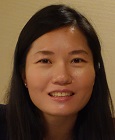 Dr. Hye Seong Mun
Dr. Hye Seong Mun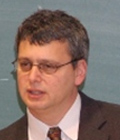 Professor Colin Picker
Professor Colin Picker Dr. Tomer Broude
Dr. Tomer Broude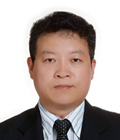 Professor Wang Jiangyu
Professor Wang Jiangyu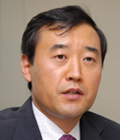 Professor Won-Mog Choi
Professor Won-Mog Choi Dr. Andrew D Mitchell
Dr. Andrew D Mitchell Dr. Salim Farrar
Dr. Salim Farrar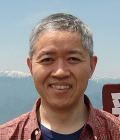 Professor Junji Nakagawa
Professor Junji Nakagawa Professor Maureen Irish
Professor Maureen Irish Professor David Gantz
Professor David Gantz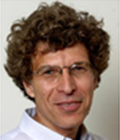 Professor Moshe Hirsch
Professor Moshe Hirsch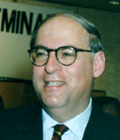
 Professor Yong-Shik Lee
Professor Yong-Shik Lee